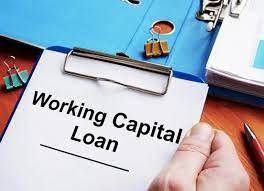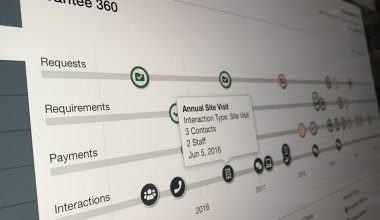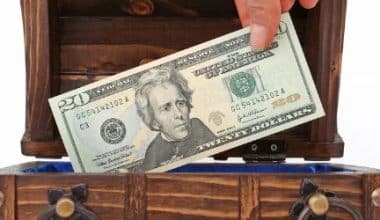Whether you are just beginning your credit journey or already have some credit history, as well as characteristics like your willingness to pay an annual fee and your employment status, will determine which first credit card is best for you. Your objective should be to find the best first credit card for your particular needs and financial situation, regardless of who you are or how much money you make. Therefore, you want a card that will encourage and reward you as you develop good credit card habits. This article shows you the best first credit cards that will help you build credit for the year 2023.
What is a First Credit Card?
A first credit card is typically the one that a person who is just starting to build credit or has a short credit history applies for and is approved for. First credit cards typically have lower credit limits and higher interest rates than other credit cards because they are intended for people with little to no credit history. To promote card usage and establish credit history, many first credit cards also provide rewards programs or cash-back incentives.
In addition, card issuers may grant a cash line of credit (LOC) to cardholders, allowing them to borrow money in the form of cash advances with different terms and higher interest rates.
Note that:
- You should use your first credit card responsibly and make on-time payments on all of your bills to protect your credit score.
- On purchases made with credit cards, interest is assessed.
- Banks and other financial institutions may issue credit cards, which frequently come with benefits like cash back, discounts, and reward miles.
- Debit cards and secured credit cards are options for people with poor or no credit.
What you should know before getting a First Credit Card
#1. Beginners may not qualify for the best credit cards:
As a newcomer to credit, you may not be able to qualify for the best credit cards with rich rewards and perks. Instead, you may have to start small with a product geared toward people with limited or no credit history. However, many such cards offer decent rewards and don’t charge annual fees.
#2. You can easily get a credit card by making a security deposit:
Secured credit cards are designed for people with damaged credit or no credit and require a cash deposit to open an account. Minimum deposit requirements range from $200 to $500, depending on the card. Note that if you always make on-time payments and spend well below the card’s limit, you could establish good credit within a matter of months.
#3. Your first credit card can build or ruin your credit:
The main reason to get a credit card is to boost your credit, but it can have the opposite effect if not taken care of. Every month, your issuer will report your card activity to the credit bureaus, which includes whether your payments have been on time and how much of your available credit you’ve used. Therefore, to pay in full and on time every month and stay well below your credit limit.
#4. You should see the rates and fees before applying:
Credit card issuers are required by federal law to publicly disclose certain terms, such as interest rates and fees before you apply. These terms are displayed in a Schumer box, a table that can usually be found on a credit card application page online or on a slip enclosed in paper applications. Note that the Schumer box includes the card’s annual fee, APR, foreign transaction fees, and late fees. However, some information is not available until after you apply, such as the card limit.
#5. You can avoid credit card fees:
Credit card fees can be avoided if you pay on time, avoid foreign transaction fees, avoid balance transfers and cash advances, and stay within your credit limit. Additionally, you should know issuers can’t charge them unless you opt into over-limit protection
#6. You can avoid paying interest too:
Credit cards have a grace period, which means that if you pay your bill in full every month, interest won’t start accruing on new purchases until the next due date. However, if you carry a portion of your balance over to the next month, you will pay interest on that carried balance, and interest will begin accruing on new purchases immediately.
#7. You should pay more than the minimum:
Credit card statements typically display the minimum payment due, which can be confusing. However, paying less now usually means paying much more later. The minimum typically covers the past month’s interest and fees and only a small amount of the underlying balance, so if you continue to make purchases on the card, it can lead to an out-of-control balance.
#8. Paying late attracts a high fee:
Missing your due date can be costly, with late fees, penalty APRs, and damage to your credit scores. Therefore, to avoid these costs, it is important to set up automatic payments from your bank account or note your due dates on a calendar as a reminder. However, if you pay 30 or more days late, your payment will be recorded as late on your credit reports, hurting your credit scores.
#9. Getting too close to your credit limit can harm your credit score:
Your credit utilization ratio is a major factor in your credit scores. Therefore, to keep your score in good shape, try to use less than 30% of your limit at all times. Additionally, this will ensure that when the issuer reports your account’s status to the credit bureaus, your balance won’t be too close to your limit.
#10. It’s not as difficult as it sounds to deal with credit card fraud:
Credit cards offer more protection against fraud than debit cards, as the credit card company’s money is at stake, not yours. Note that federal law minimizes liability for unauthorized purchases, and the zero-liability policies of credit card networks bring liability down to $0. Furthermore, getting a replacement card is easy, as the issuer will cancel the card and send a new one with a new number.
How to Choose the Right Starter Credit Card
#1. Decide if you want a rewards credit card.
Some of the best starter cards for building credit offer cash-back rewards, though there won’t be as many options as there will be once you start moving up the credit ladder. Therefore, examine your spending plan to identify your major outlays. Finding a starter credit card that will help you save money is possible with the aid of this exercise.
#2. Decide if you want a non-rewards card.
This type of credit card, also known as a “plain vanilla” card, is beneficial to have while you establish good credit habits. Note that you won’t be tempted to spend money just to earn rewards thanks to the ease of use of these cards.
#3. Do not exceed the monthly dollar limit.
Decide on a credit card limit that you won’t go over each month. Overspending, which frequently results in credit card debt, can be avoided by setting a spending limit and adhering to it.
#4. Consider a secured credit card.
Secured credit cards limit the issuer’s risk in case of default and have fees. Note that they are a great way to build a credit history if used responsibly, and they report payment history to all three major credit bureaus.
What Do You Need to Qualify for a Credit Card
The application procedure is simple and easy to complete online once you’ve determined which beginner card is best for you. To begin applying, click on a card promotion or go to the card issuer’s website. You might have to offer the following information when requesting your first card:
- Simple contact details.
- Your Social Security number and date of birth.
- Information about your finances, such as your employment situation, yearly income, and rent or mortgage expenses.
Finally, you should apply for one card at a time and check to see if you prequalify. The card issuer will either approve or decline your application, with a letter explaining the decision.
What Is the First Credit Card You Get?
#1. Tomo Credit Card:
The Tomo Credit Card is an interesting option for those without a traditional credit history. It does not earn rewards, does not offer a welcome bonus, and requires cardholders to auto-pay their card bill each week and allow Tomo to link to relevant financial information.
#2. Petal® 1 “No Annual Fee” Visa® Credit Card:
The Petal® 1 “No Annual Fee” Visa® Credit Card is an unsecured credit card that does not require a security deposit. It offers rewards such as 2%–10% cash back at select merchants, no welcome bonus, and no foreign transaction fees. Additionally, it also offers rental car insurance coverage, making it a good choice for travel.
#3. Avant Credit Card:
The Avant Credit Card offers an option for those new to credit, but it lacks rewards and welcome offers. Its main selling point is that it’s possible to get approved without a security deposit.
#4. U.S. Bank Cash+® Visa® Secured Card:
The U.S. Bank Cash+® Visa® Secured Card is a rewards-earning option for those looking to build credit and willing to put down a security deposit.
It offers you:
- 5% cash back on the first $2,000 in combined eligible purchases each quarter.
- 5% cash back on prepaid air, hotel, and car reservations.
- 2% cash back on eligible purchases in your choice of one everyday category.
- 1% cash back on all other eligible purchases.
Additionally, it does not offer a welcome bonus, but with good payment behavior, it may be able to “graduate” to the unsecured version.
#5. Discover It® Secured Credit Card:
The Discover It® Secured Credit Card is a solid option for those willing to consider a secured card.
It offers you:
- 2% cash back at gas stations and restaurants on up to $1,000 in combined purchases each quarter.
- Unlimited 1% cash back on all other purchases.
- Discover will automatically match all the cash back earned at the end of the first year.
- The annual fee is $0, and Discover will review your account after seven months to see if you qualify to graduate to an unsecured account.
Note that the increased cash back on restaurants and gas stations is capped per quarter, but it’s relatively rare to earn rewards on a secured card.
#6. U.S. Bank Altitude® Go Visa® Secured Card:
The U.S. Bank Altitude® Go Visa® Secured Card* is a secured card option from U.S. Bank. It offers rewards such as 4 points per dollar spent on dining and takeout, 2 points per dollar spent at grocery stores, gas stations, and streaming services, and 1 point per dollar on all other eligible purchases. Furthermore, it does not have a welcome offer and does not charge foreign transaction fees. Additionally, other benefits include a once-yearly $15 credit towards eligible annual streaming services and no foreign transaction fees.
#7. Discover It® Student Cash Back:
The Discover It® Student Cash Back card is a great choice for students looking to build a credit profile. It offers 5% cash back on everyday purchases, plus unlimited 1% cash back on all other purchases. Additionally, Discover will match all the cash back earned at the end of the first year, and there is no minimum spending or maximum reward. Note that the card also offers a 0% intro APR on purchases for 6 months, and cardholders can customize their card designs and have access to their FICO Score for free each month.
#8. Discover It® Student Chrome:
The Discover it® Student Cash Back card is a better choice for most students, while the Discover it® Student Chrome may benefit those with a different spending profile. Rewards include 2% cash back at gas stations and restaurants, 1% cash back on all other purchases, and an unlimited cashback match at the end of the first year. Note that there is no minimum spending requirement or maximum reward.
What is the Best First Credit Card?
The Discover it® Secured Credit Card and Capital One Platinum Secured Credit Card are the best starter cards for most students, while the Discover it® Student Chrome is low-maintenance for beginners. Additionally, international students may benefit from the Deserve® EDU Mastercard for Students, while U.S. newcomers may need a different card depending on their history and Social Security number.
What is a Good First Credit Card?
The U.S. Bank Cash+® Visa® Secured Card offers up to 5% cash back on certain purchases and the opportunity to upgrade to an unsecured card if you pay your bills on time and stay within your limit. Additionally, new cardholders must put down a minimum deposit of between $300 and $5,000, which acts as their credit line. Note that this is ideal for those who want to build credit while earning cash back.
What is the Best First Credit Card for Young Adults?
Discover it® Cash Back offers an unlimited cashback match, 5% cash back on everyday purchases, and 1% cash back on all other purchases. It also helps reduce the exposure of personal information online by helping to remove it from select people-search sites. Additionally, it has a free mobile app, and for every $1 you earn in cashback, you can redeem $1, and it attracts no annual fee.
What is the Best First Credit Card for Students
The Discover it® Student Cash Back program is an excellent way for students with average or limited credit scores to gain experience managing credit. Additionally, it offers no annual fee, no penalty APR, plus up to 5% cash back rewards in rotating categories and 1% back on other purchases. Furthermore, it also offers an unlimited cashback match, 5% cash back on everyday purchases, and 1% cash back on all other purchases. Finally, no credit score is required to apply, and there is 0% intro APR on purchases for 6 months.
What Is a Good Credit Limit for a First Card?
A person’s first credit card typically has a credit limit between $500 and $1,000. It may, however, only cost $100. You can anticipate that limit rising as long as you maintain timely payments and build credit.
Should I Get My First Credit Card at 18?
The Credit Card Accountability Responsibility and Disclosure Act of 2009 requires you to be 18 years of age and have proof of independent income or a co-signer. However, before turning 18, kids can become authorized users on a family member’s account to learn the ins and outs of a credit card.
How Can I Build My Credit With No Credit?
Regular, non-secured, and secured cards can help consumers build a positive credit history by providing a way to make online purchases and eliminating the need to carry cash. Therefore, to build a good credit history, cardholders must make regular, on-time payments, avoid late payments, keep credit utilization under their credit limit, and maintain a low debt-to-income ratio. Furthermore, by making responsible purchases and paying them off on time, a consumer’s credit score will rise, making them more attractive to other lenders.
How Long Does It Take to Get a Credit Card?
The majority of companies send new cards within 10 to 14 days. The type of card you applied for, as well as other elements like potential mail delays, may affect how long it takes to receive your new card. Note that your card might take longer if you request a unique design, which some companies offer.
Is $1,000 Good for a First Credit Card?
Yes, a $1,000 limit is appropriate for a first credit card because new cardholders frequently start with much lower spending limits. The minimum limits on some well-known starter credit card offers are as low as $200 or $300.
How Much Money Do You Start With a Credit Card?
Usually, your credit limit is the same as your deposit. Depending on the card, the minimum deposit ranges from $200 to $500. The majority of secured cards let you increase your deposit to get a bigger credit limit. Losing this deposit would be possible if payments fell behind.
SAM’S CLUB BUSINESS CREDIT CARD: Requirements, Benefits & All You Should Know
Best 2023 CREDIT CARDS WITH 0 INTEREST for 18 Months
STUDENT LOANS FOR BAD CREDIT: Best Options ( Federal & Private)
WHAT IS INSURANCE: Definition, How It Works, & Policy Types






